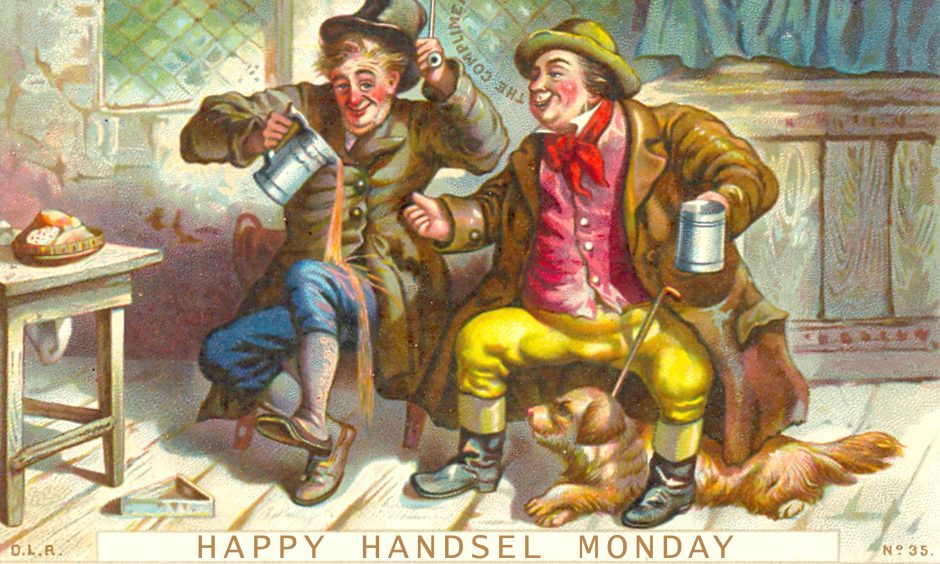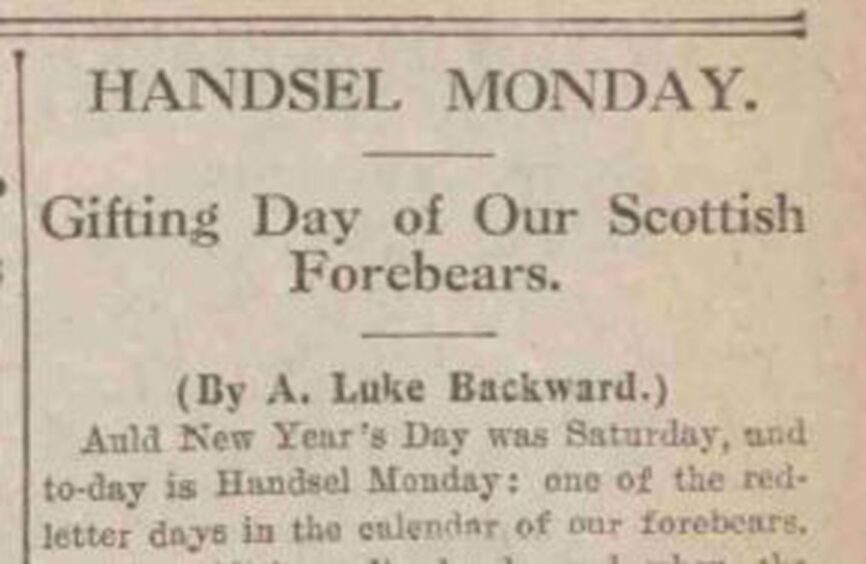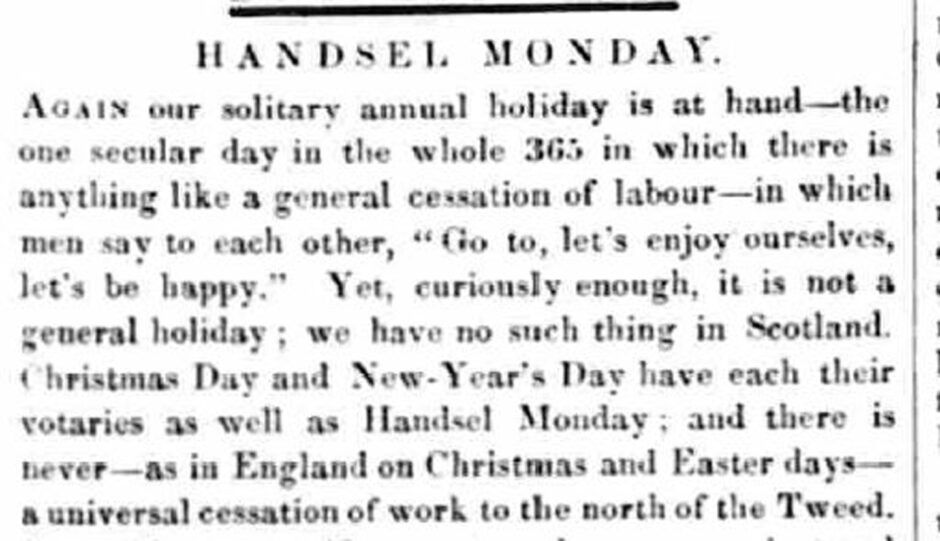
Happy New Year! But did you know that this day in years past wouldn’t have about chillaxing or barely raising your head from the pillow all day after the previous night?
On the contrary, it was about unabashed carousing and merriment, not to mention the tipping of servants and giving of small gifts to children.
It was known as Auld Handsel Monday (in Gaelic Diluain Traoighte or Drained Monday), and was always the first Monday in January.
The origin of the word
The word ‘handsel’ originates from an old Saxon word which means ‘to deliver into the hand’.
But to be absolutely accurate, before our modern Gregorian calendar in which 11 days were removed from the old Julian calendar in 1752, Handsel Monday would have fallen on the first Monday after January 12. Too complicated for the sore head? Have another hair of the dog and don’t worry about it.
Just know that this year, it’s today.
Money was a popular handsel gift, and was supposed to ensure monetary luck for the rest of the year.
But if you gave someone an object, you had to be careful it wasn’t sharp, or it would ‘cut’ the relationship between the giver and the recipient.
A P&J article from January 14 1929, by A. Luke Backward (chortle chortle) describes Handsel Monday as “one of the red-letter days of our forbears”.
A day of giving
“From the Scots King at Holyrood to the beggar at the door, all received their tributes on Handsel Monday.
“The gifts of this day carried with them more than the normal measure of good luck.
“Anything that came to one on Handsel Monday, be it bairn or calf or lamb, was hailed as a harbinger of fortune.
“If you receive on Handsel Monday you will be sure to be lucky for the rest of the year.
“Such was the cheerful belief of our forebears—and there is probably just as much truth in it as in some of our latter-day philosophies,” opines Mr Backward.
He goes on to say Handsel Monday used to take pride of place in the social calendar, even before Yule Nicht and New Year’s Day, and the suggestion after the change in the calendar that popular festivities should take place on New Year’s Day “gave rise to indignant protests from the populace”.
Merriment could get out of hand as ‘inebriates wander the streets’
Inevitably the Handsel Monday merriment could get out of hand.
An Alloa paper in 1862 reported that “a considerable number of inebriates have been wandering about our streets during the week, and in the immediate neighbourhood there has been more than an average amount of intemperance.”
It transpired that there had also been “two deaths on old Handsel-Monday through the intemperate use of intoxicating drink.
One young shoemaker had been found out cold in the road, and died a few hours later.
A woman who made and hawked women’s caps was found mangled on the railway line, having been ‘very much intoxicated and stupified with drink.”
A handsel of doggerel poetry
If you’re partial to a bit of doggerel, this poem ‘Handsel Monday’ by the forgotten Scottish poet Dorothea Ogilvy was lifted for the People’s Journal in 1893.
“Tis Handsel Monday doon oor Street,
Where mony folk are walking;
Where mony stop their friends to greet
Andy hear ilk ither talking.
Nae doot it’s no their ain concerns
We hear them jabber, jabber;
While cabs rin by; ilk wheel that turns
Does them with mudbeslabber.
The feythers sune let go their bairns
And hand them to the mither;
Ayne aff they jink to drink by turns
At some alehouse or ither.
The mither wi’ their troop or bairns
Fast clinging to their skirtings,
Glowr into shops, while granny turns
To bargain for cheap shirtings.
Gutter
And so it goes on, getting darker and darker, with descriptions of terrible toys, shoplifting, intoxication, fighting and how decent folk had better get home quick before finding themselves in the gutter.
These days we can credit poet Liz Lochhead for keeping the word ‘handsel’ alive by entitling her latest oeuvre ‘A Handsel’.
But mercifully there doesn’t appear to be any move to bring back Handsel Monday in a hurry.
More like this:
Did you party with the best of them at the Inverness Red Hot Highland Fling?



Conversation